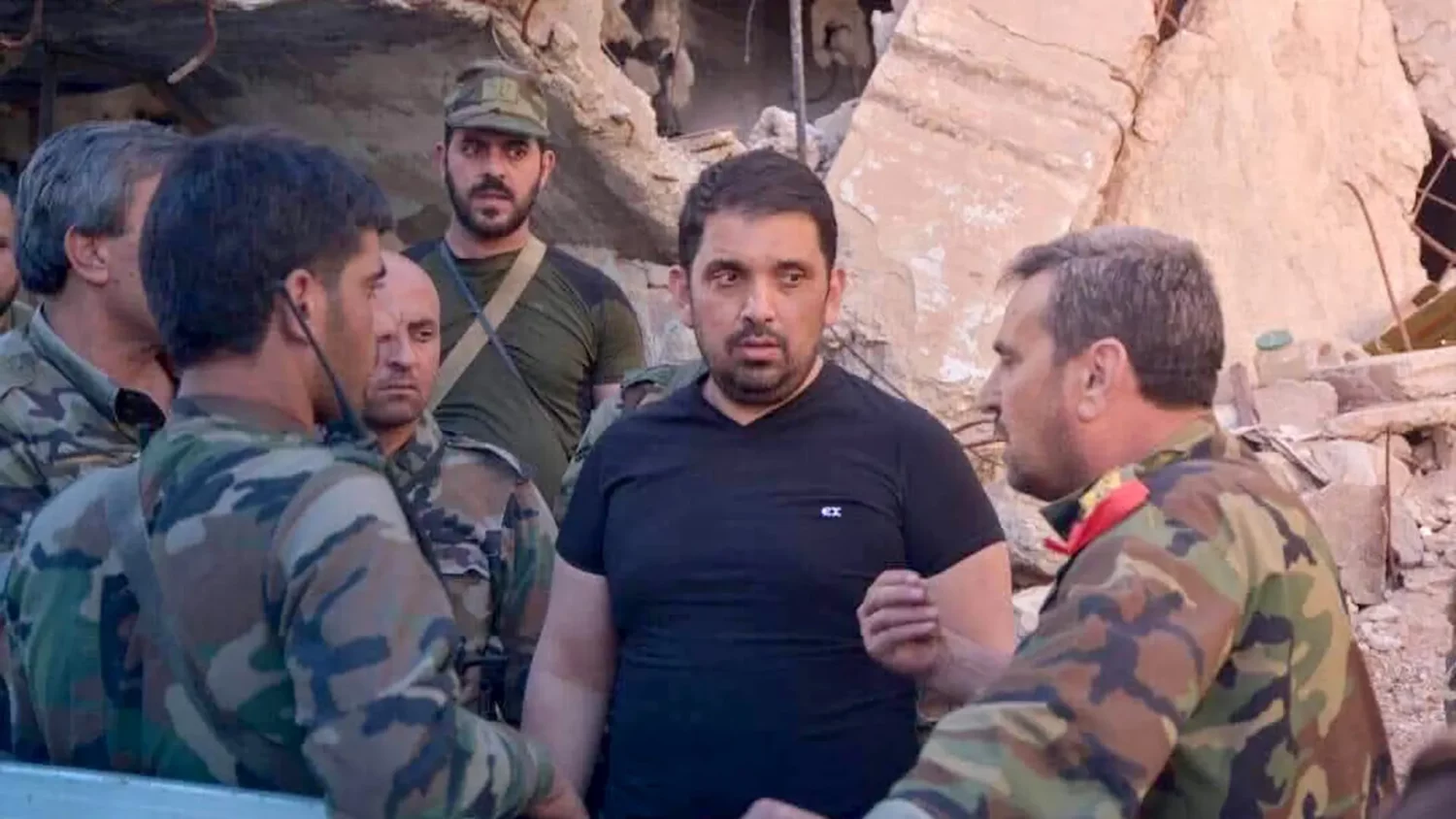In the aftermath of Bashar al-Assad’s downfall, hopes were high that Syria’s transitional period would mark the beginning of a state founded on justice, accountability, and the dignity of its citizens. Yet recent developments, as documented across multiple investigative reports and statements, suggest that impunity remains deeply embedded in the architecture of power—now reframed in the language of “national reconciliation” and “civil peace.”
Rehabilitating the Perpetrators: The Case of Fadi Saqr
The re-emergence of Fadi Saqr, a former commander in the notorious National Defence Forces (NDF) and a key figure implicated in crimes against humanity—including the infamous Tadamon Massacre—has ignited widespread public outcry. Saqr has not only escaped prosecution but has also been reintroduced to public life as a figure of “peacebuilding” under the auspices of the Transitional Authority. His so-called “guaranteed safety,” defended publicly by Hassan Soufan, a senior member of the Committee for Civil Peace, is justified as a necessity to “defuse tensions” in Syria’s coastal regions.
This move was swiftly and unequivocally condemned by rights groups, particularly The Caesar Files for Justice, which described the decision as a profound insult to victims and a dangerous subversion of transitional justice. The organisation decried what it called a “conceptual fallacy”—the idea that justice must follow stability rather than constitute its foundation. Such thinking, they argue, risks reconstituting the very cycles of violence Syria seeks to transcend.
Civil Society Marginalised, Justice Undermined
The documentation is damning. A months-long investigative report by Zaman al-Wasl revealed a vast archive of detainee photographs and military correspondence originating from NDF facilities, including official memos signed by Fadi Saqr himself. Many detainees were registered as having “died in custody”—a cold euphemism for systemic torture, medical neglect, and, likely, extrajudicial execution.
Despite the fall of the regime and the opening of detention centres, families are still left without answers. The images offered some grieving families the only confirmation they’ve had of a loved one’s fate. Others remain in agonising limbo. For these Syrians, justice is not an abstraction; it is the simple right to know, to mourn, and to see those responsible held to account. Reconciliation, for them, cannot come without truth—and certainly not at the cost of memory.
A Fragile Justice Process, or Political Theatre?
Though a National Commission for Transitional Justice has been established by presidential decree, the dissonance between its mandate and the actions of parallel bodies—such as the Civil Peace Committee—raises questions about the regime’s sincerity. Legal experts, including Mutasim al-Kilani, have warned of a coming institutional crisis: a tug-of-war between those seeking genuine accountability and those viewing justice as a negotiable tool in a broader political settlement.
Al-Kilani notes that only this commission has the legal standing to determine criminal responsibility, identify perpetrators, and offer reparations. No individual, he argues, has the right to pardon crimes against humanity, least of all in the absence of due process. “Only the victims or their families may forgive,” he asserts.
Others, including Syrian journalists, point to a broader pattern: a deliberate trivialisation of transitional justice by the transitional authorities themselves. The lack of transparency around Saqr’s appointment, the opaque criteria for exonerating former regime officers, and the state’s apparent indifference to popular demands for justice all point to a state unwilling—or unable—to face its past.
Justice as a Prerequisite, Not a Luxury
At the heart of this controversy lies a fundamental philosophical divide. Is stability a precondition for justice, or is justice the only viable foundation for lasting peace? The Caesar Files Organisation is clear in its stance: there can be no legitimate peace while war criminals are repackaged as peacemakers, no national unity while victims’ demands are met with silence or insult, and no future without first reckoning with the past.
The pain of the disappeared—those tortured, killed, or simply erased—remains raw. Their families are not asking for privileges or material compensation; they are asking for truth, for dignity, and for an end to the state-sanctioned denial of what was done to them. They reject a political process that buries their suffering beneath the rhetoric of forgiveness or expedience.
Conclusion: The Price of Peace Without Justice
The Syrian transitional authority may claim to prioritise stability, but by granting amnesty to the perpetrators of atrocity, it risks entrenching the very culture of impunity that fuelled Syria’s collapse. The decision to sidestep justice in the name of peace is not only morally untenable—it is politically shortsighted. For without truth, there can be no reconciliation. Without accountability, there can be no healing. And without justice, Syria will remain not a state reborn, but a state suspended, haunted by its past, and unprepared for its future.


